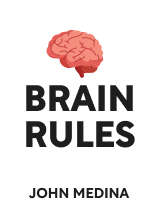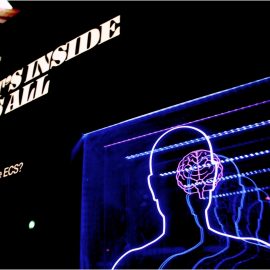

This article is an excerpt from the Shortform book guide to "Brain Rules" by John Medina. Shortform has the world's best summaries and analyses of books you should be reading.
Like this article? Sign up for a free trial here .
Do you feel consistently overwhelmed or pressured? What are the effects that long-term stress can leave on your life?
Long-term stress, otherwise known as chronic stress, is the constant feeling of stress over a long period of time. Not only does this type of stress cause physical effects on your body, but it can leave mental effects as well. Your learning skills and memory can be negatively impacted by the amount of stress you are experiencing.
Read on to learn more about long-term stress and how it affects your mentality.
Long-Term Stress vs. Short-Term Stress
In his book Brain Rules, Medina notes that there are two kinds of stress: short-term stress (acute stress) and long-term stress (chronic stress). If you’re driving and swerve to avoid an oncoming vehicle, you’d experience acute stress. On the other hand, if you experience heavy traffic every day, causing you to be habitually late to work, you’ll experience chronic stress.
Stress evolved as a survival response, since early humans faced many immediate dangers on a regular basis. He argues that people have evolved to manage acute stress well because this is the type of stress that helps us avoid imminent threats. However, he argues that we haven’t evolved to handle chronic stress well.
The reason long-term stress is a problem is that the body isn’t meant to deal with stress hormones over a long period of time. When we have a stress response, our bodies produce the hormones adrenaline and cortisol, which give a burst of intense energy and focus the body on the immediate threat. If this happens over a long period of time, these hormones can depress the health and growth of neurons, and can even disable the gene that creates these cells.
The Effects on Memory
Medina writes that short-term stress can actually improve memory. This is because the hippocampus, which stores memories, has a lot of receptors for the hormone cortisol, which is a hormone that your body produces during acute stress. Thus, during times of short-term stress, you can retrieve information and solve problems more effectively because of the additional cortisol. Medina postulates that our brains have developed in this way because of the evolutionary need to remember how to respond to stressful situations and to think on our feet.
However, long-term stress can degrade memory because it sends excessive amounts of cortisol to the hippocampus, which can disconnect neural networks. This causes memory loss and can prevent new cells from being created—and thus hurt your ability to form new memories.
| Ways to Lower Cortisol Levels Studies show that elevated cortisol can be particularly harmful to memory in older adults. One study of over 4,000 older people found that those with the highest cortisol levels had lower brain volume than other participants, and found that they performed worse on memory tests. If you have a stressful life, there’s a good chance you have high cortisol levels—and therefore, that you might be at risk for memory loss later in life. To lower your stress and cortisol levels, try finding more ways to relax and enjoy yourself. For example, try watching a comedic TV show—studies show that watching funny videos can lower cortisol levels. |
The Effects on Learning
Because of its profound effects on memory, long-term stress can severely hinder learning. Studies show that adults with chronic stress perform worse than low-stress adults on tests related to memory, math, language, focus, and the ability to use pre-existing knowledge to solve new problems.
(Shortform note: Studies have noted two particularly significant impacts stress can have on learning: It damages the ability to retrieve information, which makes testing difficult, and damages the ability to change memories based on new information, which makes it difficult to build on pre-existing knowledge.)
Long-term stress can also contribute to clinical depression, which harms many important cognitive functions. These include not only memory and language, already established to be harmed by stress, but also spatial awareness, problem-solving & abstract reasoning, and quantitative reasoning.
(Shortform note: Scientists believe that the relationship between stress and depression is “bidirectional”, meaning that just like stress can cause depression, depression can cause stress. If you find yourself slipping into a stress-depression cycle, medical professionals recommend talking with supportive family and friends, making small lifestyle changes (like getting sufficient sleep and making time for yourself), and consulting with a professional if these steps don’t help.)

———End of Preview———
Like what you just read? Read the rest of the world's best book summary and analysis of John Medina's "Brain Rules" at Shortform .
Here's what you'll find in our full Brain Rules summary :
- An explanation of how the brain works in a simple and accessible way
- The 12 rules that help fulfill the core functions of the brain
- How to improve your thinking and learning abilities






